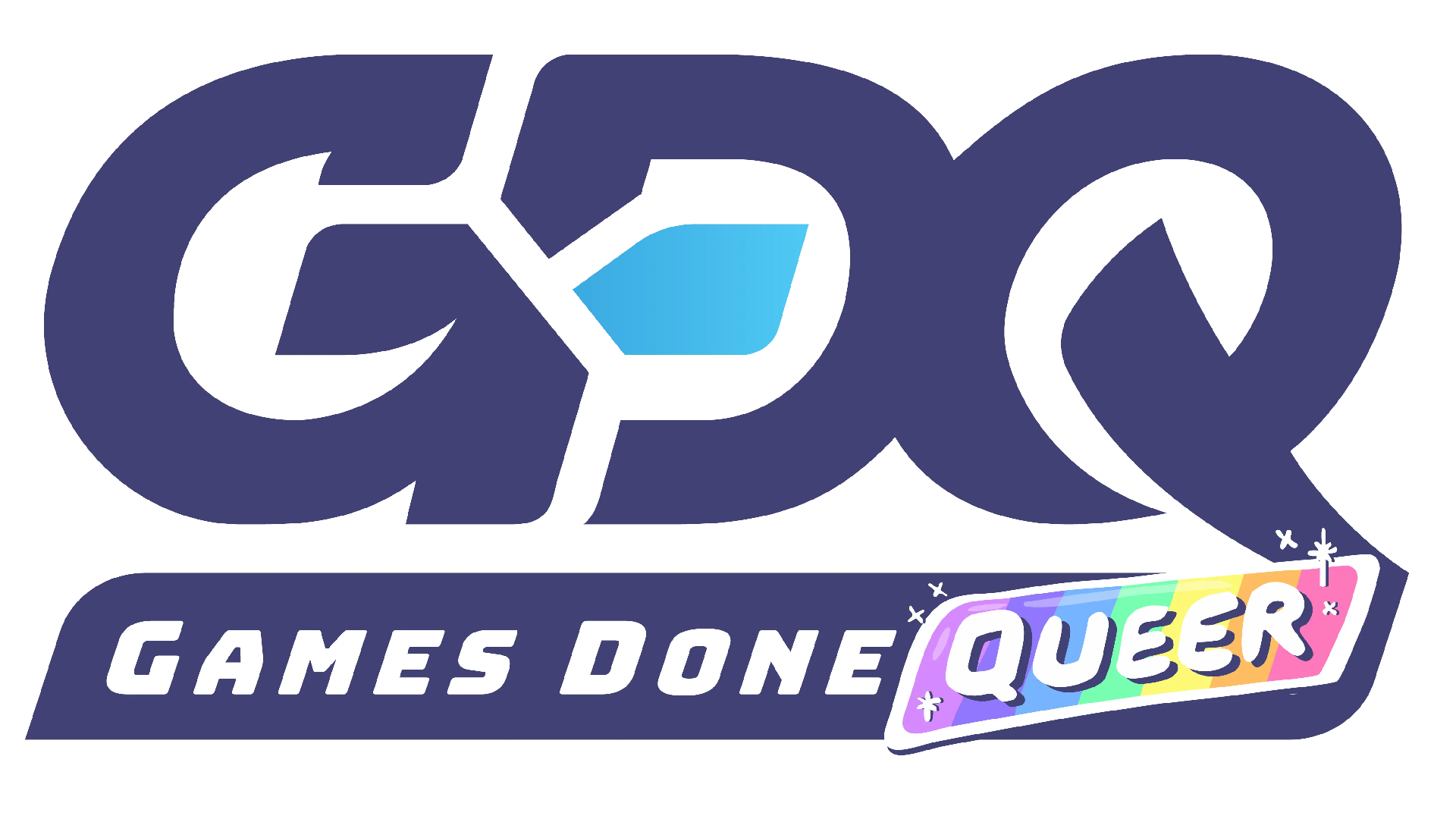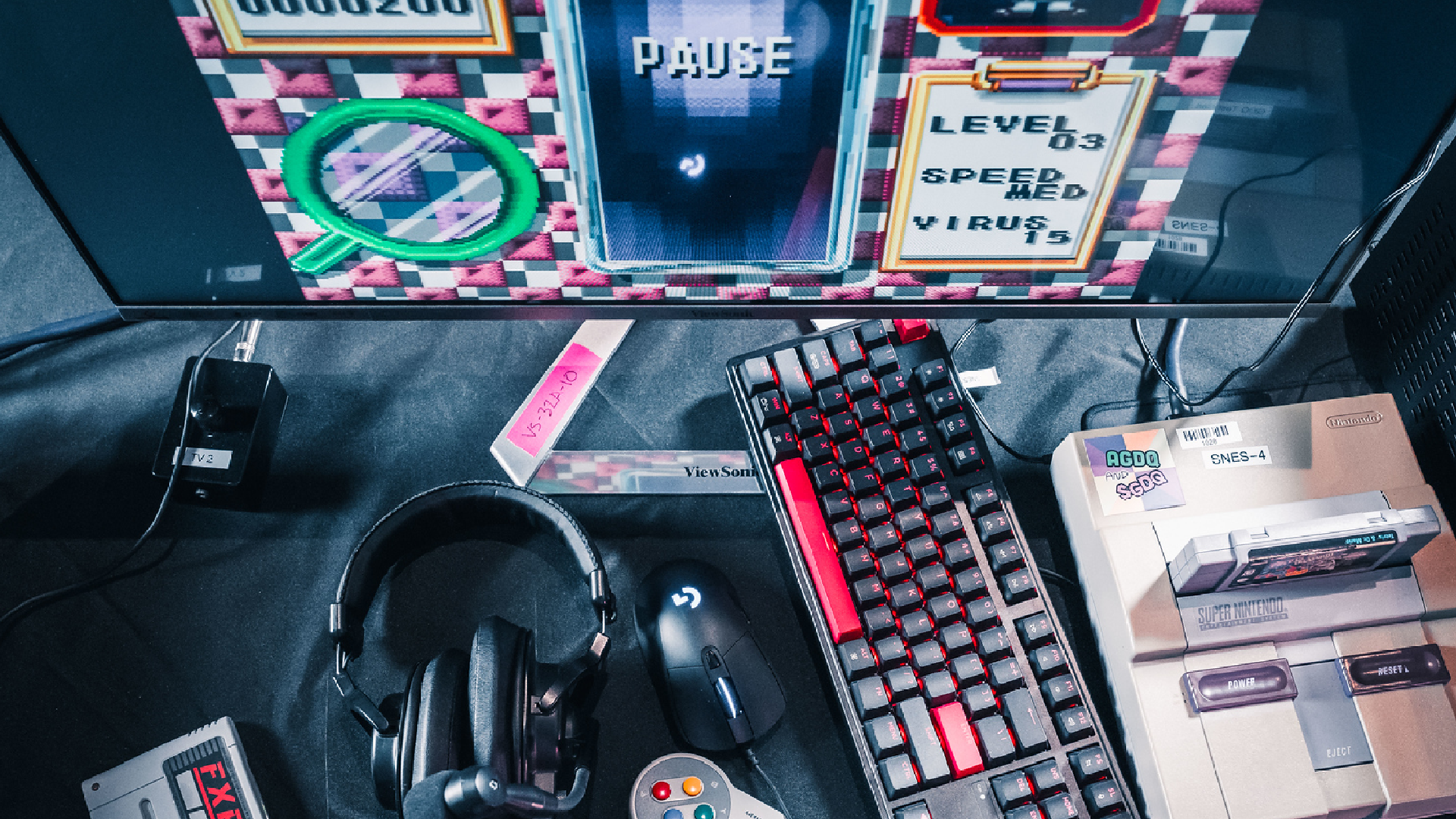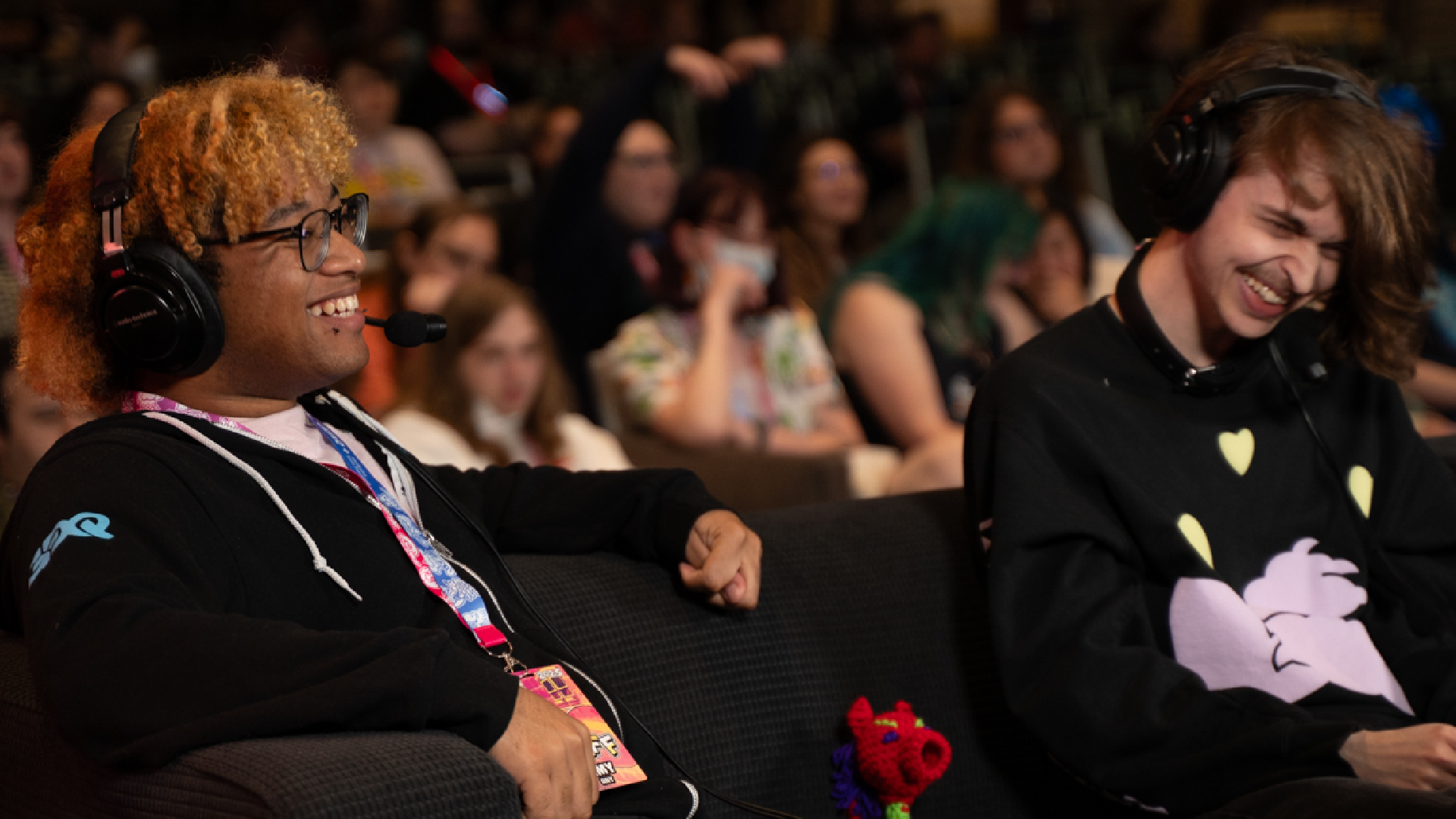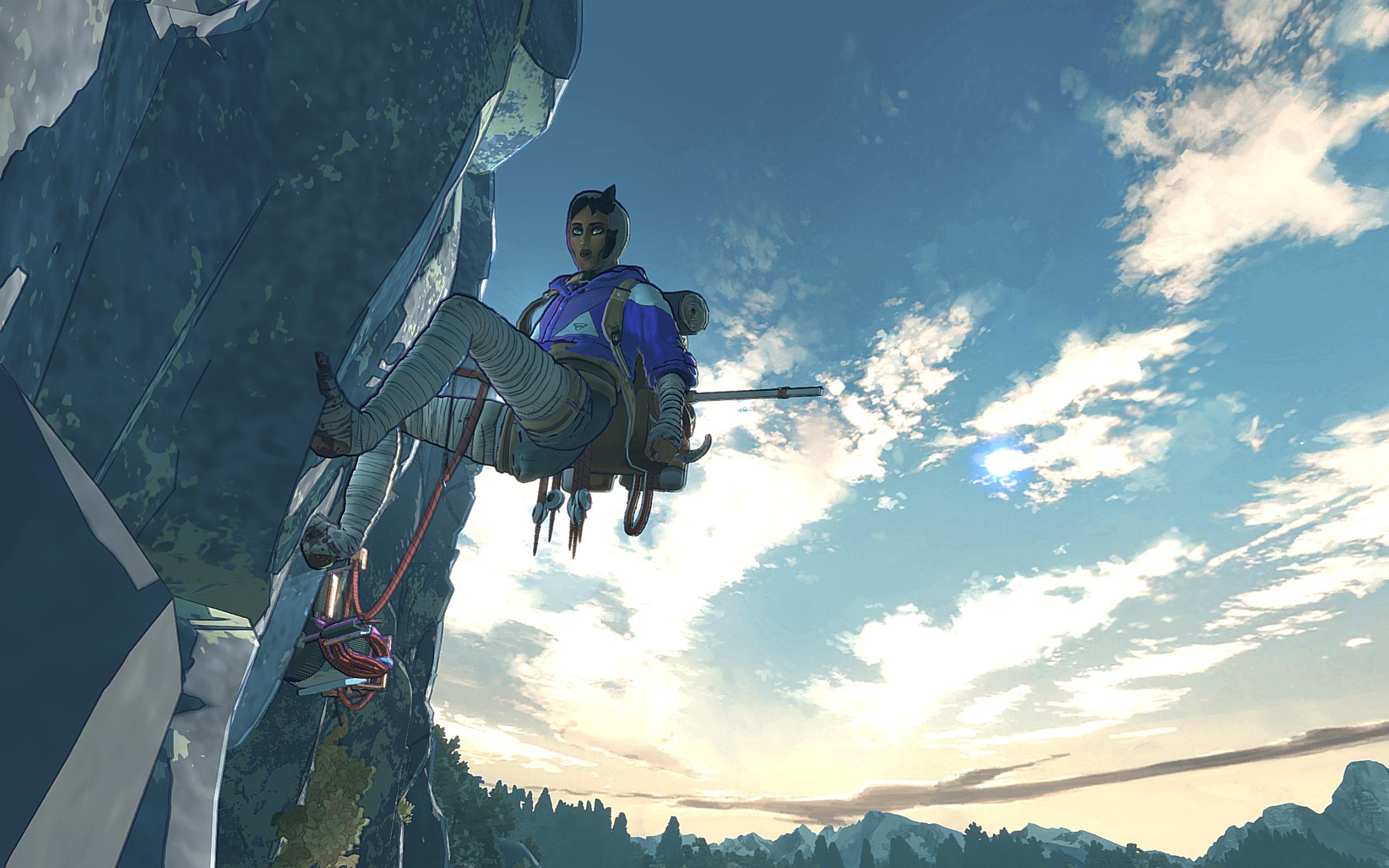GDQ's upcoming event, Games Done Queer, has already become a fierce rallying cry of support for LGBT rights in the US: 'We had 450 hours of content submitted for the 36-hour show'
"We're here, we're bigger than you think we are, and we can band together when it's important."

Things are rough out there, right now, if you're any sort of queer—particularly in the US. The Trump administration has made sweeping executive orders to harm LGBTQ+ health, attacking gender-affirming care for trans people, and steamrolling anything it can in the name of a bone-headed "anti-DEI" crusade. It's a nightmare.
Which is why Games Done Quick, a fundraising event that routinely raises heaps of cash for charity via the wonderful alchemy of speedrunning, is turning its focus there with Games Done Queer, pleasingly still abbreviated as GDQ. But, you know. Gayer. I had the pleasure of speaking with organiser Rae Brusky (Raelcun) about the event, which'll be taking place between October 31 and November 2:
"Games Done Queer is an event we've been trying to put together for a while, but only came to fruition this year … We're going to be raising money for Lambda Legal, which is an excellent charity based here in the United States, defending LGBTQIA rights, plus anyone with HIV or fighting HIV."
Lambda Legal was founded in the 70s, and has been constantly on the frontlines defending gay rights in the United States—including invalidating "sodomy" laws, which, yes, were still a thing in 2003. But, while they state the work is important, Brusky also says it's a weekend designed for celebration and decompression.
"It's been pretty tough recently, so we're getting together for a good cause, but also having fun. And I think those two go together, and both halves of that are really important.
"There's entire sections of the US where I just don't feel safe going anymore. Especially just with the constant torrent of news, and people having to weigh whether or not they're going to keep up with the news for their own safety or take a break for their own mental health, really weighs on people."
This all, they hope, will result in a weekend where people can "get together, have a weekend where you can stress a little bit less, get a break from all of the awfulness—but also feel like you're contributing to the cause at the same time."
Keep up to date with the most important stories and the best deals, as picked by the PC Gamer team.
Getting it done
The speedrunning community's particularly notable for being welcoming in the present-day, similar to the fighting game community (FGC)—while there are sadly exceptions, Games Done Quick has made a point to platform marginalised speedrunners in recent years who often just, like, happen to be really good at speedrunning games, and has also taken steps to keep them safe in the past.

While Brusky is (correctly so) quick to note that it certainly wasn't always this way, bringing up the online hatred trans people in the speedrunning community have historically had to endure just 10 years ago, there's been a serious effort on GDQ's part to make it happen:
"I get the question somewhat frequently, like, 'Why are there so many gay and trans people at GDQ?' And the answer is, there's not. It's just that they feel safe enough to be open about it at our event. And I think that's a really important distinction. It's not like the community is larger here. It's just they're safer being themselves, and it does somewhat attract more people as you go.
"I think that the fighting game community has a pretty good overlap with how speedrunning has evolved in that, 10 years ago, it was not very common, and there were a few people who kind of led the charge, and they took a lot of heat for it, but they stood firm and said, No, this is who I am, and you're going to have to deal with it."
As a matter of fact, Brusky's been there in-person to watch it happen: "I started off as just the person behind the stage helping keep things running, and that's how I got my staff badge. Originally, I was just an attendee, but things were way less organised back then. I was one of the ones who kept pushing to make this happen. It's something I've been really passionate about."
People are talking about whether or not they're going to be able to stay where they are, if they have to flee to a different state or different country, and it's just such a hard talk."
As for the event itself, Brusky's real excited—talking effusively about how they're looking forward to seeing speedrunner Motoss flex on Elite Beat Agents ("a lot of people who are familiar with OSU are not prepared for how ridiculous that game is", they add) and a secret "Gay%" speedrun of a Super Mario World fan level pack where you play as Sonic, which sounds like a wonderfully cursed pin to the entire event.
"I hope that it surprises people. There's definitely the gay community who are behind it and super excited, and they're ready to celebrate … I think outside of the community, we're going to surprise people with the amount of support. Even though the speedrunning community has become a lot more accepting, I think the amount of community support that we can draw will surprise people who are not a member of that community.
"I want that awakening of 'We're here, we're bigger than you think we are, and we can band together when it's important' is a big part of it. But as I've also mentioned, I just want people to have fun. It's so important right now, things are so hard."
As a queer person myself, watching on with nails bitten as my friends in the US are placed in jeopardy, it's bittersweet to see Brusky describe the air of fear in the community as of late: "People are talking about whether or not they're going to be able to stay where they are, if they have to flee to a different state or different country, and it's just such a hard talk. Things that are really difficult to think about; picking up your life, uprooting it, and going somewhere else."
The good news is, mercifully, there's been no shortage of camaraderie—so much, in fact, that Games Done Queer couldn't host a fraction of the people who wanted to sign up.
36 hours is not enough
"We had something like a 2.7% acceptance rate on games submitted," Brusky explains. "We had 450 hours of content submitted for the 36-hour show."
In other words, "The excitement has been there, and I want to thank not just the people who've been helping me make it happen, but those who submitted, put their names out there … It's nerve wracking to take something you care about, package it into a neat little bow and say, 'I would like to do this, and I am submitting to be judged.'

"So to everybody who submitted, we appreciate you so much. Thank you. Whether or not you made it in or not, submitting is important, and we appreciate that you worked really hard because we got so many more submissions than we were expecting."
You can watch Games Done Queer live on Twitch at 10 am PT / 5 pm GMT, starting October 31 and proceeding through to November 2. It's worth tuning in for a good cause, but also—I know you want to find out what a 'Gay%' run of a Super Mario mod with Sonic in it means. I mean, I certainly do.

Harvey's history with games started when he first begged his parents for a World of Warcraft subscription aged 12, though he's since been cursed with Final Fantasy 14-brain and a huge crush on G'raha Tia. He made his start as a freelancer, writing for websites like Techradar, The Escapist, Dicebreaker, The Gamer, Into the Spine—and of course, PC Gamer. He'll sink his teeth into anything that looks interesting, though he has a soft spot for RPGs, soulslikes, roguelikes, deckbuilders, MMOs, and weird indie titles. He also plays a shelf load of TTRPGs in his offline time. Don't ask him what his favourite system is, he has too many.
You must confirm your public display name before commenting
Please logout and then login again, you will then be prompted to enter your display name.

